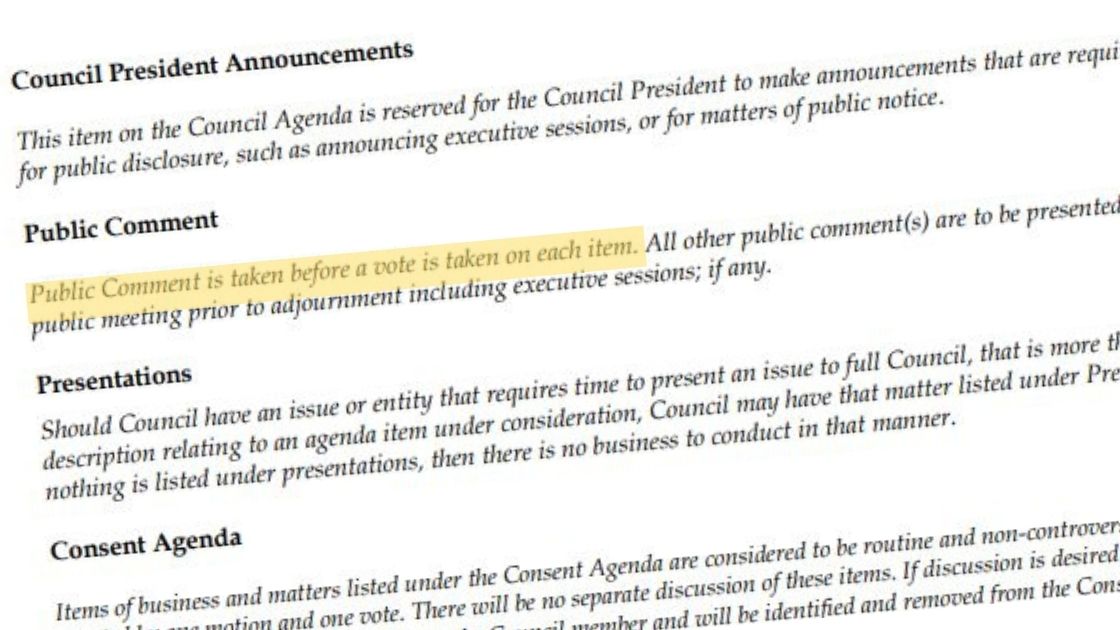As MoreThanTheCurve.com reported on February 3rd, during the February 2nd meeting of Conshohocken’s Borough Council, four votes were taken and public comment was not permitted prior to the vote. All of the votes involved the advertisement of ordinances that could be adopted at future meetings. Advertisement of the ordinance prior to the vote to adopt or reject is required by law.
One of the votes involved the eminent domain of the Outbound Station property at 2 Harry Street. The property owner, Joe Collins, sought to offer public comment prior to the vote but was denied. The agenda for the meeting clearly stated that public comment was allowed prior to any vote. The agenda stated:
Public Comment is taken before a vote is taken on each item. All other public comment(s) are to be presented at the end of the public meeting prior to adjournment including executive sessions; if any.
The Sunshine Act addresses the requirements for public comment. From the Office of Open Records:
The Sunshine Act gives the public the right to comment on issues “that are or may be before the board.” Agencies must provide a reasonable opportunity for residents and/or taxpayers to comment on an issue before a decision takes place.
As we mentioned in the February 2nd article, the question as it pertains to the Sunshine Act is whether a vote to advertise an ordinance is viewed differently than a vote to adopt an ordinance.
The response from George Spiess, chief of outreach and training, open records officer from the Office of Open Records was as followed:
I’m not sure you could claim advertising ordinances is considered official action. It’s more of an administrative requirement as dictated by the borough code. The official action would occur when they vote on the actual ordinance.
We then followed up to ask whether the wording on the actual agenda to allow for public comment prior to a vote triggered the requirement. The response was that it did not.
This reminds us of an issue a few years ago that occurred with the Colonial School Board. When the board came under new leadership it decided to not answer questions asked during public comment even though the agenda referred to the public comment section of the meeting as “Questions or Comments from the Floor.”
No law prevented Conshohocken’s Borough Council from allowing Collins from speaking prior to a vote. They just chose to do what the law minimally required (which is allowing him to speak at the end of the meeting).
Collins went to the meeting with the expectation of being allowed to speak prior to the vote based on the borough’s posted agenda. While it is the opinion of the Office of Open Records that the borough did not violate the Sunshine Act, Collins (or any member of the public) could file a complaint and seek a determination from the court.
Question for the public.
Should Collins have been allowed to speak since the borough had included that opportunity on the agenda? Let us know in the comments.

